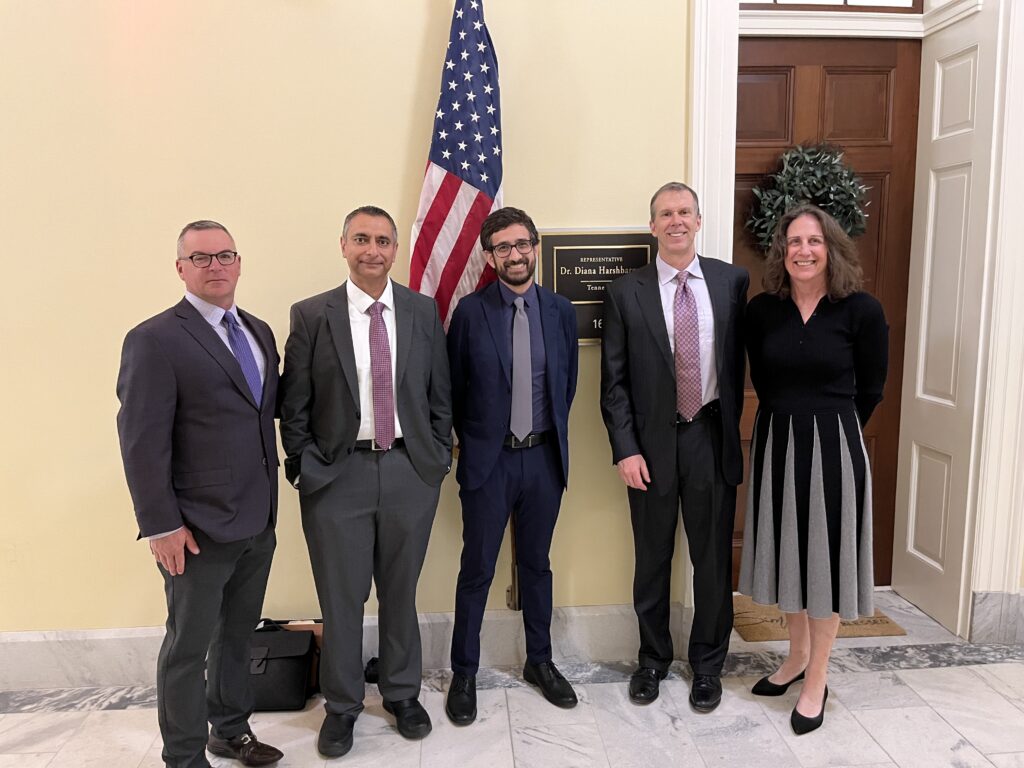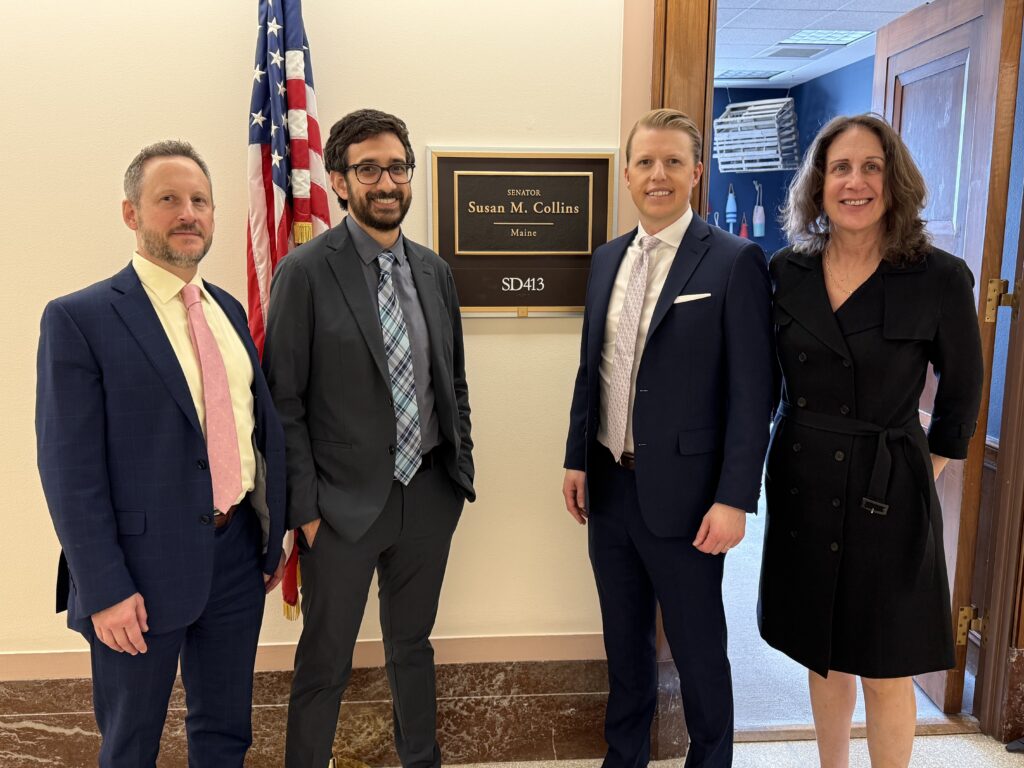APTQI Advocates Visit Washington, Meet with Lawmakers on the SAFE Act and Medicare Cuts
This week, APTQI members visited Washington, D.C. to meet with lawmakers and their staff to discuss issues impacting physical and occupational therapy practices. These discussions provided a critical opportunity to highlight pressing issues, educate decisionmakers, and advocate for positive change for our providers and the patients they serve.
Thank you to our advocates from Athletico, ATI Physical Therapy, CORA Physical Therapy, Cypress Health Partners, First Settlement Physical Therapy, FOX Rehabilitation, and U.S. Physical Therapy who participated in these important conversations. APTQI leaders were able to meet with members and staff from the offices of Senator Susan Collins (ME) and Representatives Troy Balderson (OH-12), Gus Bilirakis (FL-12), Kat Cammack (FL-03), Buddy Carter (GA-01), Dan Crenshaw (TX-02), Morgan Griffith (VA-09), Andy Harris (MD-01), Diana Harshbarger (TN-01), Nick Langworthy (NY-23), Mariannette Miller-Meeks (IA-01), Jay Obernolte (CA-23), and Michael Rulli (OH-06).
During these meetings, APTQI leaders emphasized the importance of two key legislative priorities:
- Stopping Addiction and Falls for the Elderly (SAFE) Act (H.R. 1171): By increasing access to falls risk assessments from falls experts—physical and occupational therapists—the SAFE Act aims to protect older Americans by reducing falls, subsequent hospitalizations and other potential health risks. As advocates for patient well-being, APTQI members urged lawmakers to support this bipartisan bill to ensure aging Americans receive the proactive care they deserve.
- Medicare Physician Fee Schedule Reform: Year after year of Medicare reimbursement cuts have created significant challenges for physical and occupational therapists. APTQI leaders asked offices to support efforts to stabilize reimbursement rates and provide relief for providers and their Medicare patients.
APTQI greatly appreciates the engagement and thoughtful questions from all the offices they met with this week and their willingness to understand the challenges facing our profession. APTQI remains committed to advocating for solutions that protect patient access to therapy services and strengthen the future of our profession. Together, we will continue working to advance policies that support our patients, our provider community, and the future of physical therapy.


